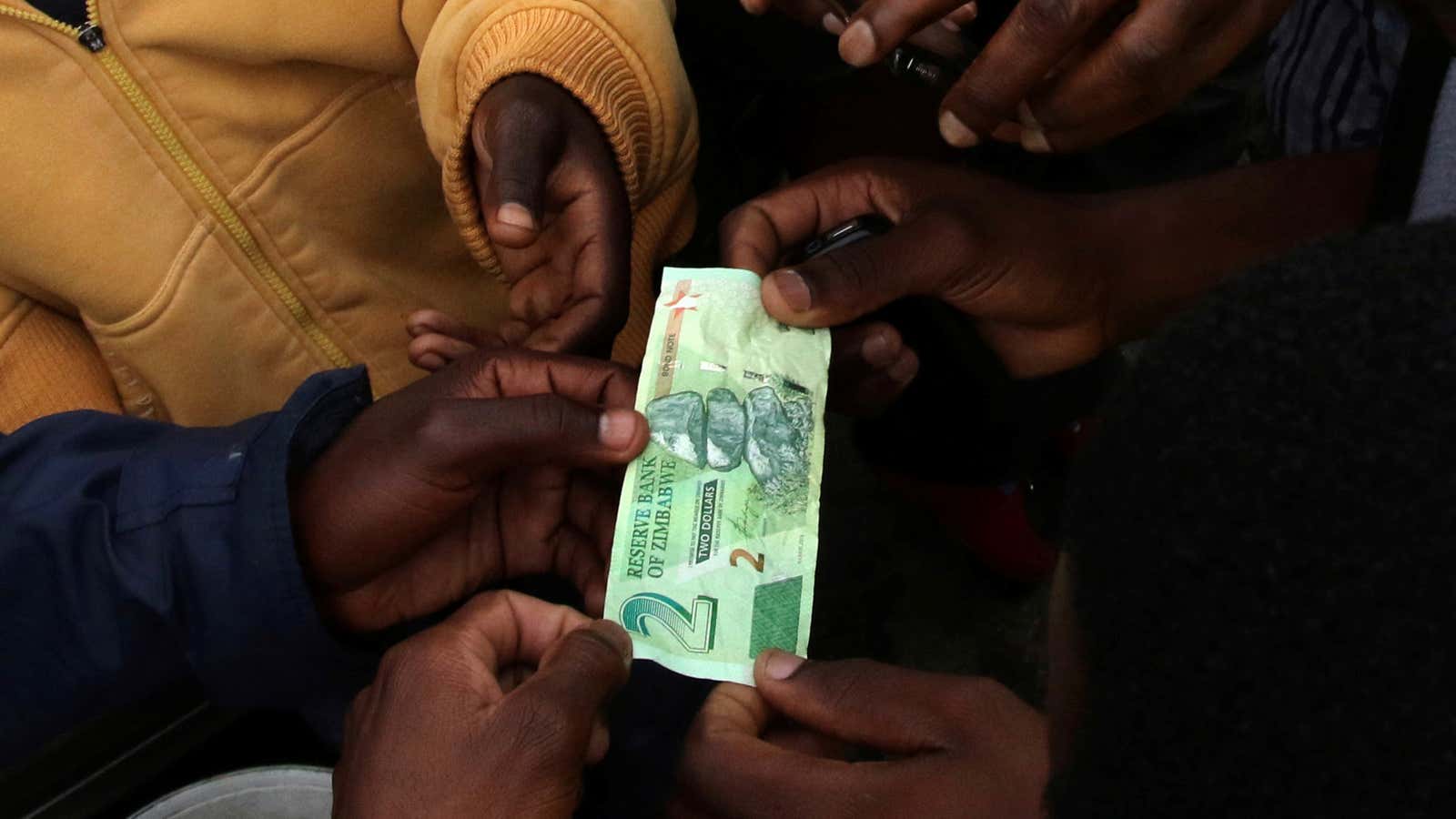Zimbabwe’s bond notes have been in circulation for a day and a half, and already they’re bringing back memories of the darkest days of the country’s collapsed currency. The notes are a desperate attempt to address a severe cash shortage in a crippled economy, but the bond notes are likely to exacerbate the very problems they are meant to solve.
The notes, printed by the Zimbabwean Reserve Bank, are recognized as legal tender only in the country and were introduced in a bid to increase liquidity in an economy running short on cash. They bear a resemblance to the old Zimbabwean dollar but are meant to represent a value in US dollars.
The trouble began just as soon as Zimbabweans began using bond notes in place of cash on Monday Nov. 28. The Reserve Bank of Zimbabwe promised that the notes will be valued at 1:1 to the US dollar, but the monetary authority is already losing control of the substitute currency. Zimbabwe has been using the US dollar, along with the South African rand and the Chinese Yuan since 2009 since it’s own currency collapsed.
Some Zimbabweans were cautiously optimistic:
While others saw an opportunity:
But most were dismayed by the introduction of the bond notes, fearing a return to the days of hyperinflation that led to a worthless currency.
“People are calling it zombie money, because it’s risen from the death of the Zimbabwe dollar and will be about as useful,” a Harare taxi driver told Bloomberg. “We’ll use it to pay fines and bribes to the police.”
Fuel prices saw an 11.3% price difference in the cost of diesel between the US dollar and bond notes, said KPMG. Some large supermarkets also refused to accept the new tender. The reserve banks said the measure was aimed at boosting imports and exports, but it’s unclear how this helps beyond day-to-day transactions.
“I do not think that Zimbabwe has the current internal production or the export market to have a currency that is valued at the same rate as the US dollar,” Muziwethu Mathema, senior economic advisor with KPMG. Mathema, a Zimbabwean living in South Africa, admits he is anxious.
Many Zimbabweans have shared this feeling in the weeks before the notes were introduced. Citizens began to line up outside banks to withdraw US dollars, sleeping overnight in lines if necessary. The fear driving many is that hyperinflation will spiral out of control as it did in 2008, forcing the now defunct Zimbabwean dollar into denominations of 15 zeros as inflation reached an annual rate of 231 million percent.
To prevent a repeat disaster, the reserve bank has committed to limiting circulation of bond notes to $75 million. But the parallel black market need not follow these constraints and hoard the new currency, adversely influencing it’s already precarious valuation.
Coupled with the existing trust deficit in the markets and the public, the nightmare of hyperinflation may return. What’s worse, the level of productivity was probably higher in 2008 than it is today, warns Mathema. Bond notes, he says, will not fix Zimbabwe’s economy. Restoring confidence in the currency will only come if currency is restored in the country.
“The issue is how does Zimbabwe attract the capital and liquidity into its country,” he said. “Basically Zimbabwe needs to posture itself in a manner that is viewed with confidence in the international community.”
That would require political change.
